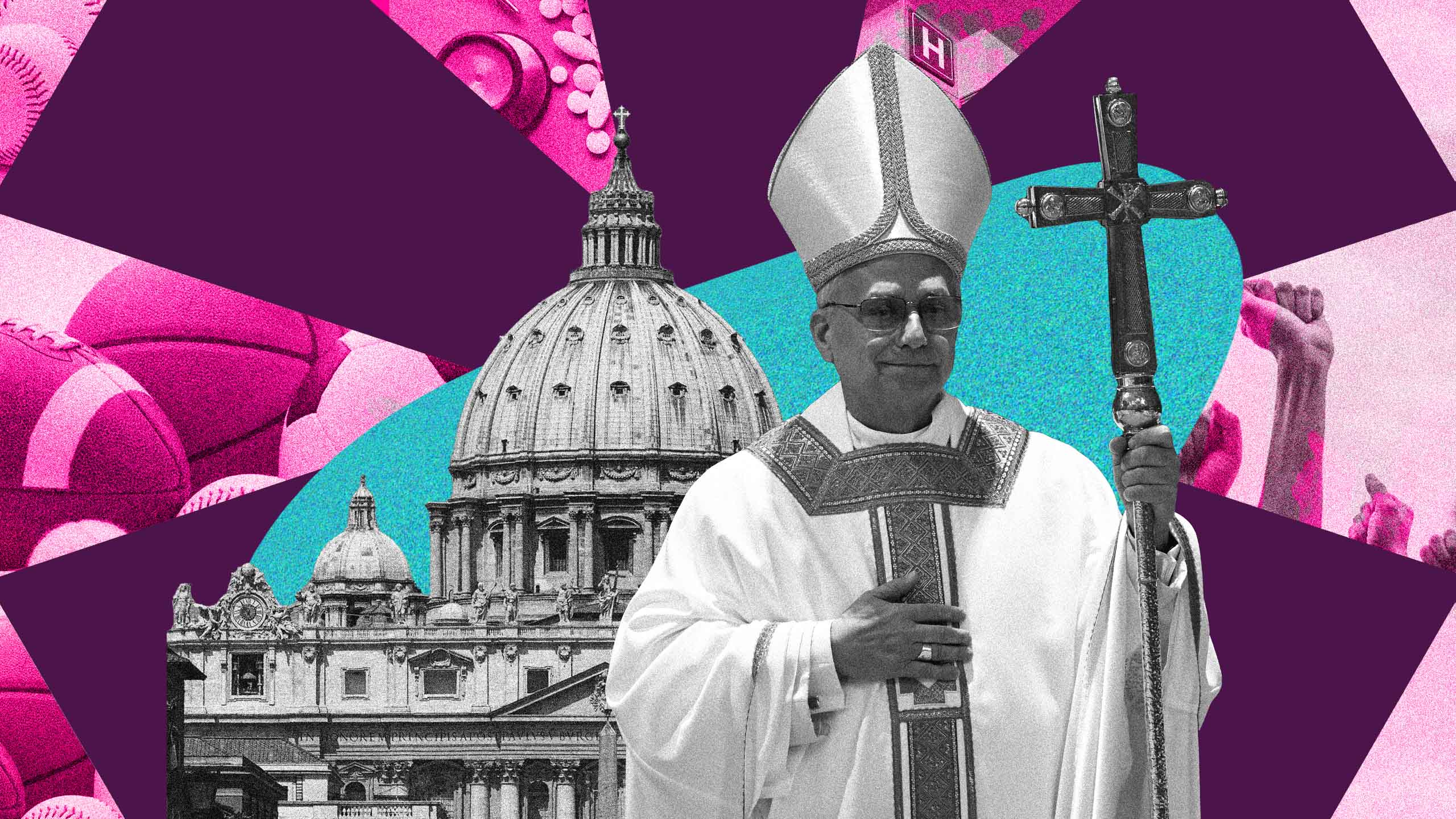Social media was abuzz on Thursday as the Vatican conclave chose American Robert Prevost as the new Pope of the Catholic Church. This marks the first time in history that a U.S.-born member of the clergy will serve in the role, something that many American Catholics, myself included, never thought we’d see in this lifetime.
The new Pope, who has chosen to go by Pope Leo XIV officially, originally hails from Chicago but spent most of his career serving in Peru, eventually becoming a naturalized citizen of the South American country. Nonetheless, the Chicago pope memes were flowing all over the internet Thursday. My own contribution was a Bluesky post saying “Papal Chicago Bulls,” a nod to both the city’s pro basketball team and the term for a public decree from the pope.
Alongside the memes, however, an immediate discourse over Leo’s politics and how they might shape the global stage popped up. An X account associated with him sent several tweets over the last few months, criticizing the Trump administration’s brutal crackdown on foreigners living in the U.S., which sent the usual players of MAGA influencers, hangers-on and grifters into a tizzy about the so-called “new woke Pope.”
I am a classic American lapsed Catholic and as a trans person, it’s unlikely that a pope will ever change the church I grew up in for me to consider it a safe space to find community. Two things specifically drove me away from the church; the first was a conversation I had with my childhood priest when I was 19 years old. I had just lost a friend I grew up with and was in a crisis of faith, and I was terrified of what happens to my consciousness after death.
I don’t now remember the priest’s name, but I distinctly remember him saying, “If there is no heaven, then Catholics are the world’s biggest fools.” The conversation didn’t have the effect I think he meant for it to have, as it only deepened my questioning of church doctrine. About five months later, the Boston Globe’s investigation into church child sex abuse was broken (brilliantly portrayed in the movie Spotlight). That was the second incident. I never went to mass again.
Nonetheless, I’ve always considered myself culturally Catholic, and definitely still struggle with the guilt instilled in me as a child. So on Thursday, I watched along with everyone else as Leo took his first public steps into the papacy.
But what exactly are the new Pope’s politics and how will his presence at the head of the church change things for LGBTQ+ Catholics? Well, that much is unclear. A recent New York Times article recounted that in 2012, Leo gave an address to bishops wherein he “lamented that Western news media and popular culture fostered ‘sympathy for beliefs and practices that are at odds with the gospel.’ He cited the ‘homosexual lifestyle’ and ‘alternative families comprised of same-sex partners and their adopted children.’”
That was over a decade ago, and his views may have evolved; after all, even President Obama was publicly anti-marriage equality that year. Leo hasn’t done a lot of media appearances, so there isn’t some long track record of public statements to dissect like you would have with a modern politician. That same New York Times article quotes Rev. Michele Falcone, a priest in the Order of St. Augustine, which Leo previously was in charge of, saying that Leo is “dignified middle of the road.”
While we might not know much about Leo’s personal politics about queer issues, we can project how his papacy will go. It’s important to consider that though the pope’s word is infallible within the Catholic Church as it’s believed that he speaks directly with God and is God’s messenger on Earth, the Vatican, and the wider Catholic Church, is a bureaucracy full of people with a wide range of opposing political views.
The Vatican has long been aligned with the European political right wing, and is the originator of the phrase “gender ideology,” a pejorative for feminist-, queer- and trans-inclusive approaches to family-making. Interestingly, in the English-speaking West, “gender ideology” strictly means inclusion of trans people and belief that trans people are real, while in Latin America and parts of Eastern Europe, the same term is used to describe legal permissiveness of abortion and birth control access and broader pro-LGBTQ+ policy. Nonetheless, both meanings originated from Vatican scholars.
In addition to that, Catholic officials are mainstays at far-right political conferences throughout Europe, even into the Pope Francis era.
The Roman Catholic Church is unique amongst the world’s religious institutions in that its headquarters, Vatican City, is its own state, with the pope serving as head of both the state and the church. This means that the Holy See can engage in global diplomacy, with embassies in foreign countries and a non-voting seat at the United Nations. The pope can influence global politics in a way that no other religious figure in the world can.
One allegedly progressive pope—or even two in a row, if you want to count Francis’s term—can’t snap his fingers (and it’s always a “his”) and change centuries of Catholic tradition. But one early indicator that Leo wants to continue some of the work that Francis started in opening up the church to a wider variety of persecuted minorities is the new Pope’s early commitment to continuing the recommendations of the Synod on Synodality that ran from 2021 to 2024.
The Synod on Synodality was a three-year process of listening and dialogue amongst a wide range of Catholics, including laypeople, in order to create a more welcoming and participatory church. Though the synod stopped short of endorsing the ordaining of female priests, it called for broader church leadership from laypeople and a loosening of rules that would allow women to take up more positions of authority within the church. It also called for a kinder and more welcoming approach to LGBTQ+ Catholics.
That Leo has already said he would continue the work started in that synod is an encouraging sign for a future, more welcoming church for LGBTQ+ people, especially in the face of a global far-right power grab that seeks to send us back to society’s margins. I don’t see the Catholic Church changing enough for me to be welcome back into the church of my youth, but I am cautiously optimistic about the future of Catholicism under Leo.


 Why you can trust Xtra
Why you can trust Xtra


